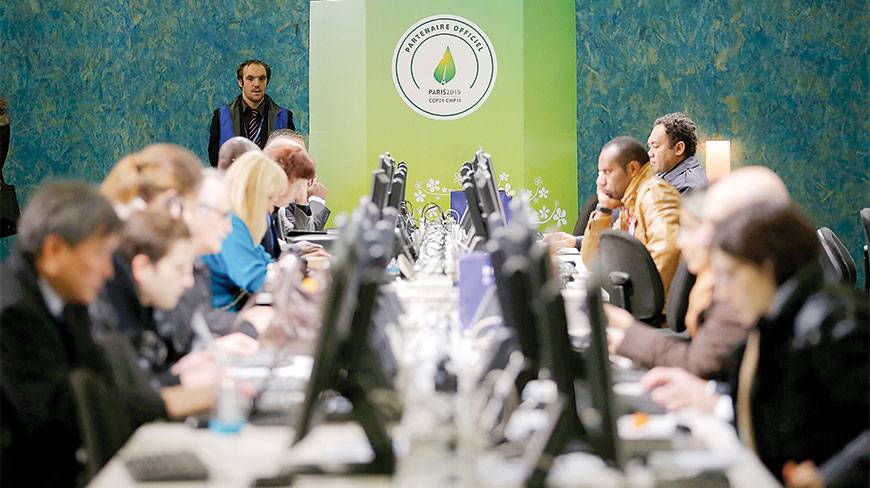Did we win or did we lose?
In the wake of the climate change negotiations in Paris, there are (at least) two contradictory narratives circulating about the resulting treaty. Governments and mainstream NGOs are trumpeting a triumph of diplomacy which is finally going to move us away from the fossil fuel era and holds out hope of preventing climate catastrophe.
Meanwhile, climate justice activists are despairing that the treaty is weak, unjust, pro-corporate, and fails to ensure climate stability.
So, what is the real story?
As I wrote earlier, both narratives are essentially true, and were easily foreseen months ago: The Paris Agreement, as the formal treaty is known, significantly but insufficiently bends our trajectory away from the cliff of climate chaos.
It is less clear what impact it will have in terms of climate justice — the distribution of the costs and impacts.
At a deeper level, the contradictory narratives are partly the result of different views about international law and how it does, or should, function.
Unlike national or sub-national (state/city-level) law, international law is an opt-in arrangement. Because every nation is sovereign, no one can impose international law; each nation chooses which international laws should apply to them.
This creates a dramatically different lawmaking process than at the national level where the minority may vote against a law but ultimately has to abide by it. At the international level, getting nations to agree to a law (ratification) usually means watering it down substantially. The wider participation you want, the weaker the law.
As a result, international law rarely demands strong measures or penalises failures with enforcement provisions. If the law bites too deeply, a country can simply withdraw, as Canada did when it was unable to meet its obligations under the Kyoto Protocol.
It is instructive to think about the exceptions — international laws which have universal participation, stringent requirements of their member nations, and strong penalties: International trade law.
The fact that trade deals overcome these structural weaknesses and international environmental laws do not tells us a lot about where governments’ priorities lie.
Given those priorities — the international climate regime’s founding document explicitly states that it will not conflict with free trade — we can see the climate negotiations in a different light. What is the real impact of an international treaty process, if it does not force countries to take action? I would argue there are three impacts:
National regulation
Formally, countries that ratify the Paris Agreement should then enact national legislation to implement it. Since many countries refused to commit to more than they were already doing, this does not necessarily imply a flood of new national legislation.
However, there are smaller ways in which the goals of the Paris Agreement will establish a standard against which regulations, planning processes, and new legislation will be measured, at the national and local levels.
For example, we have already seen this with the 2 degrees Celcius goal becoming an increasingly accepted benchmark for calculating the effects of sea level rise.
Authorities can now evaluate projects for their consistency with the global goal of “peaking emissions as soon as possible with rapid reductions thereafter,” which their national government has now adopted as its own.
In concrete terms, most of the impact of the Paris Agreement will be dependent on the degree to which it is incorporated into local and national policy-making.
Financial flows
Much of the struggle in Paris was about money: How much developed countries would pay for developing countries to reduce emissions, adapt to changes, build resilience, and recover from disasters.We don’t have a number – and one wouldn’t be particularly meaningful anyway, since pledges are never fully met, but the agreement should augur some increase in funds.
In addition, developing countries such as China are increasingly devoting their own funds to climate projects. Perhaps most importantly, the Paris Agreement also sends a signal to private sector investors that the window to invest in polluting industries is rapidly closing.
Unfortunately, the Paris Agreement has also further enshrined the importance of carbon markets and the privatisation of indigenous land and forests.
Global conversation
One of the most important impacts of the annual negotiations is that it focuses the world’s attention on the problem of climate change for two weeks every year. It is a unique opportunity to hold our leadership accountable, to inform the public, and to generate political pressure for action on climate change.
By partly embracing goals such as 1.5C and carbon neutrality, the world’s governments have sent a unanimous message about the importance of the issue — and established a standard that we can hold them to.
Obviously, the standard is not as high as we would like, but the impact of the Paris Agreement on the zeitgeist will depend heavily on who interprets it and how it is used. That is why a few words, and their interpretation, is so important.
So, on these measures, how does the Paris Agreement stack up? In my opinion, it’s a mixed bag — some improvement, some backwards movement, certainly far short of where we need to be.
It is not the treaty that will save the planet, nor does it clearly doom us. It certainly gives additional impetus to the struggle — and that means that there is more work to do, and more opportunities to do it.
Source: DhakaTribune










